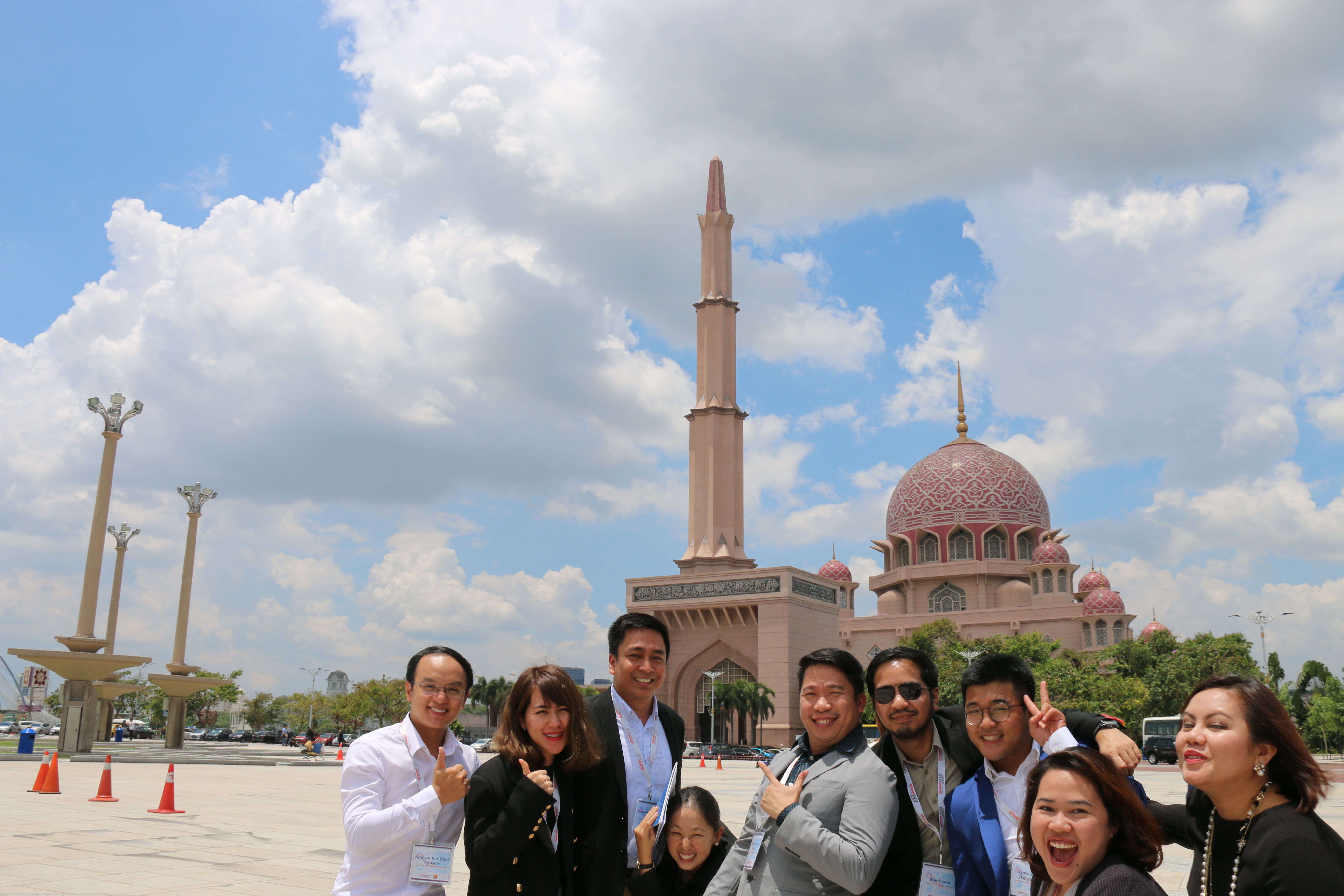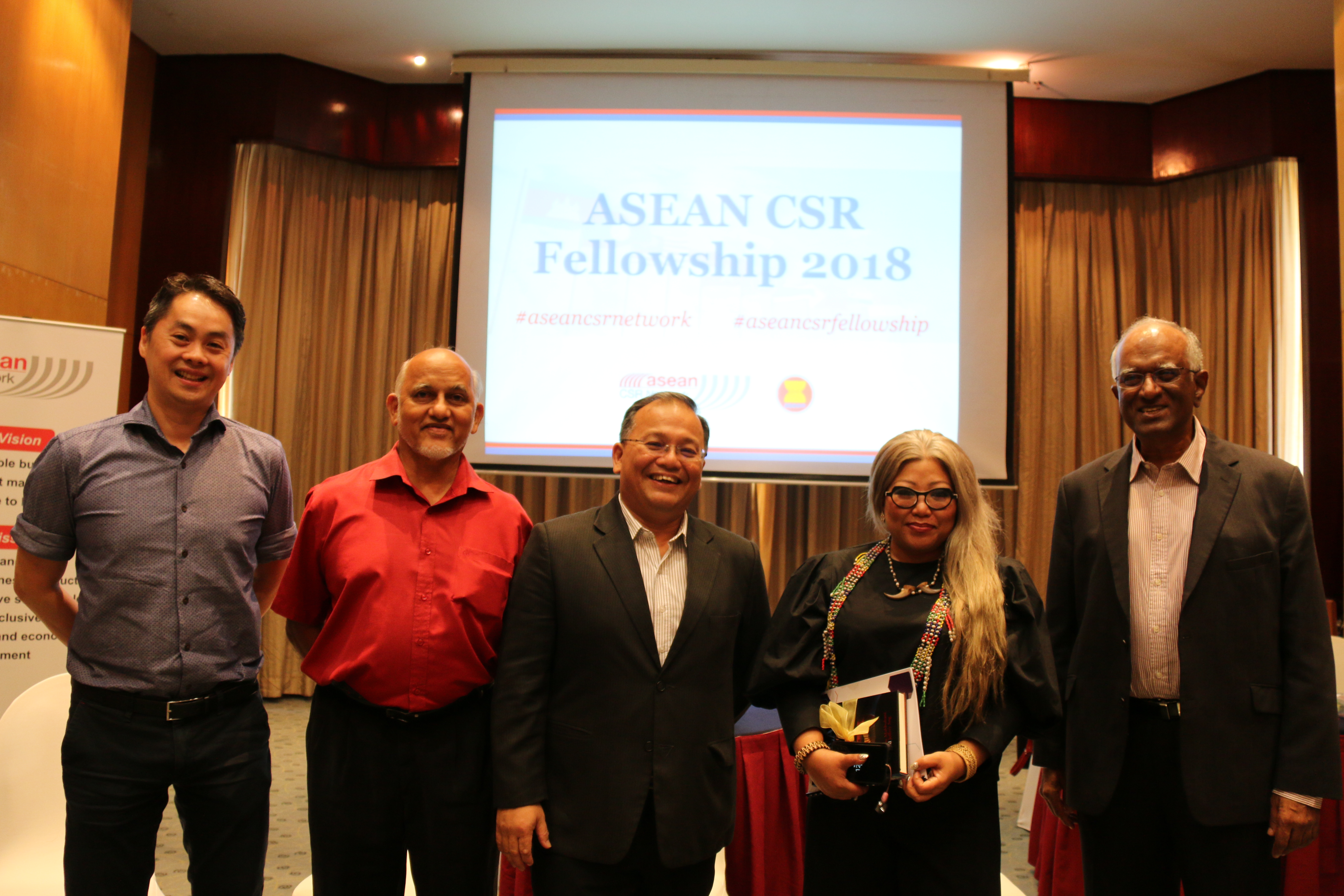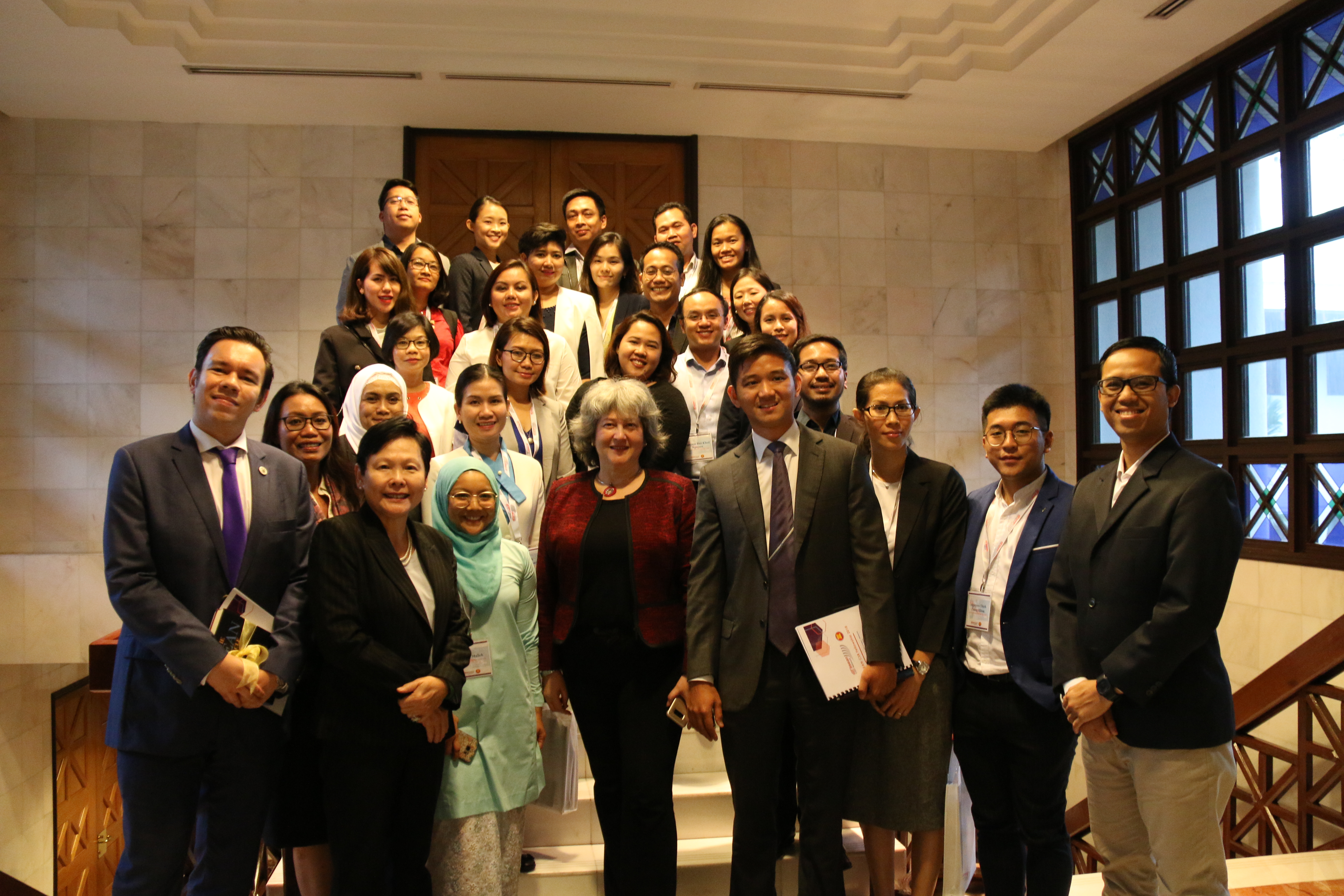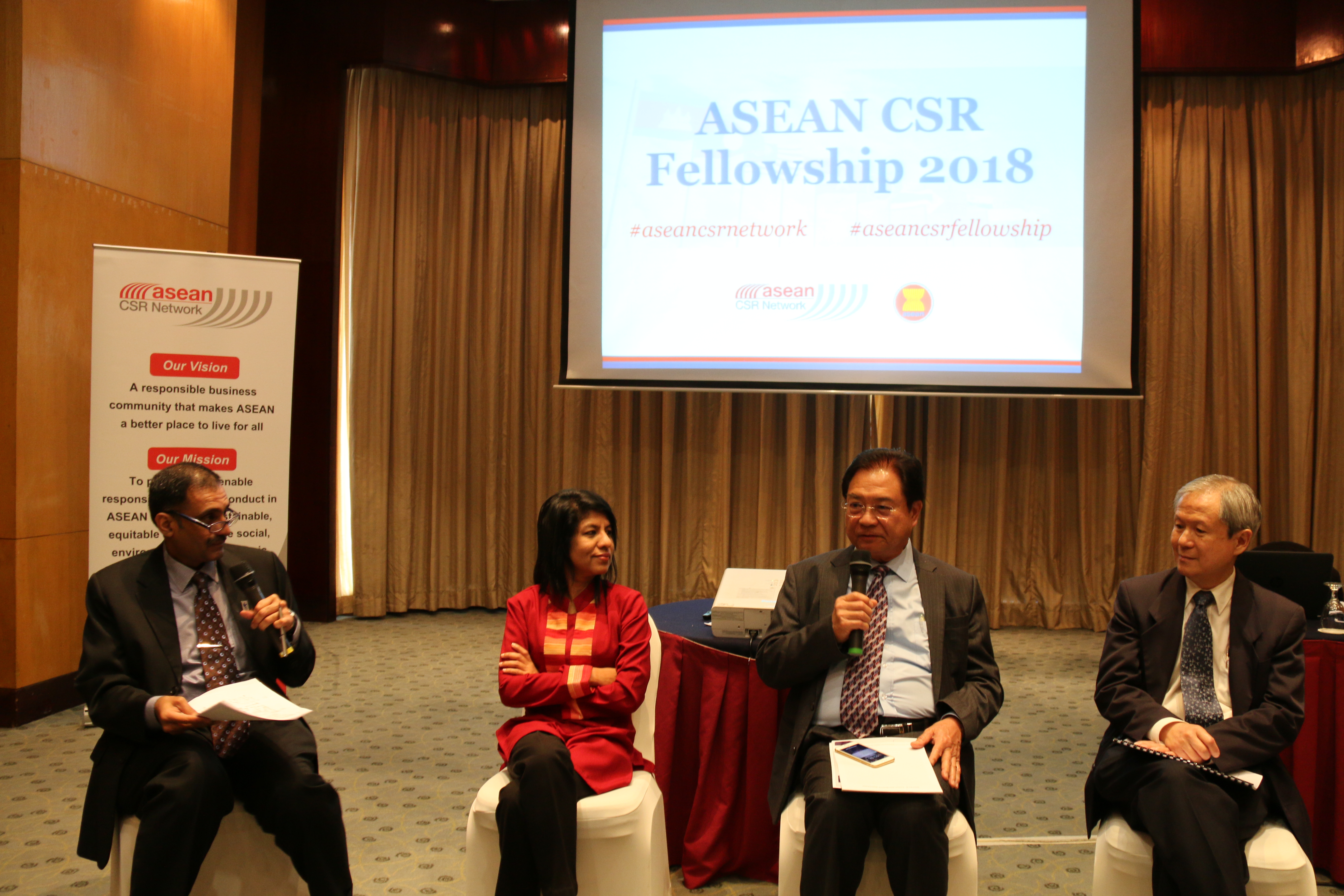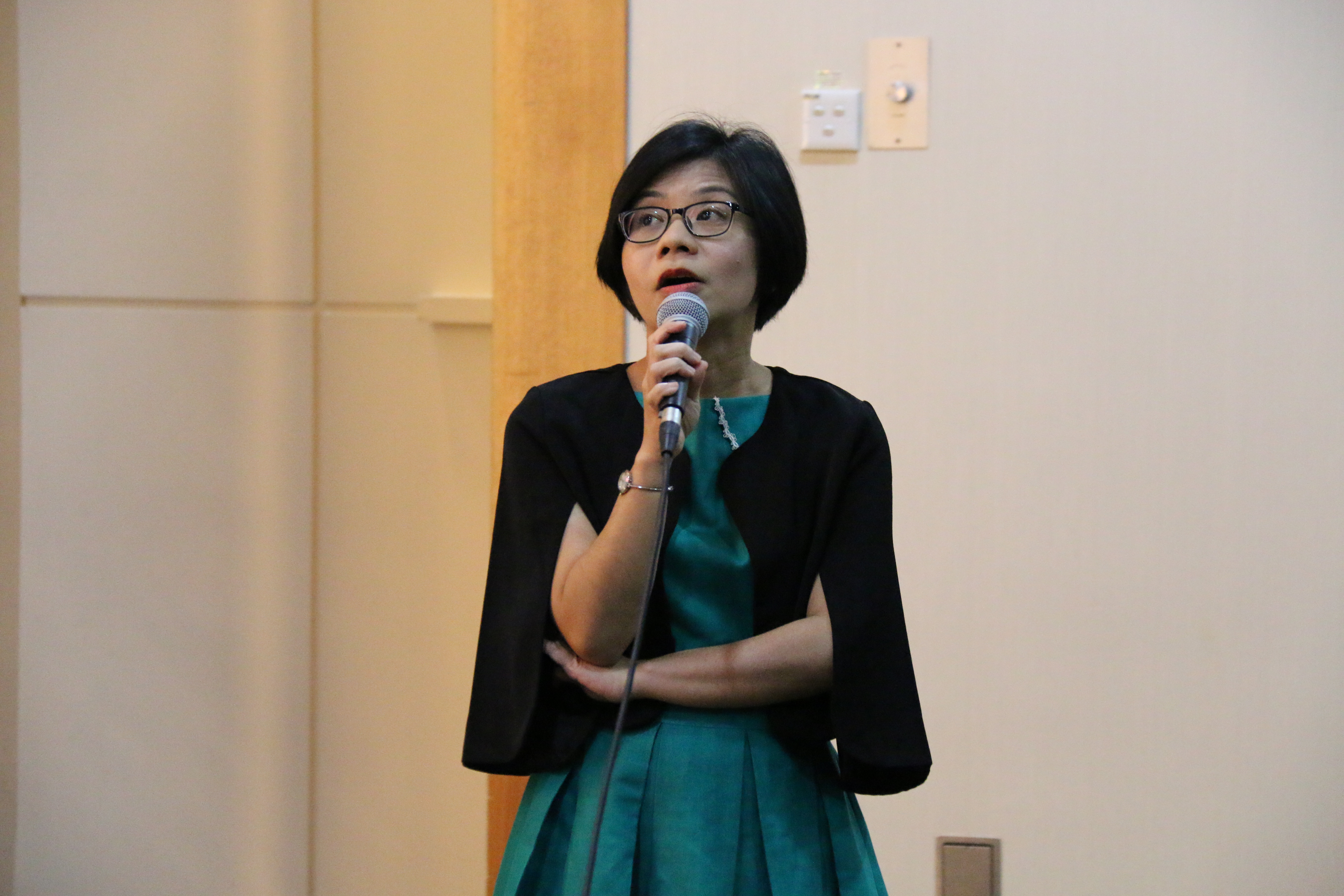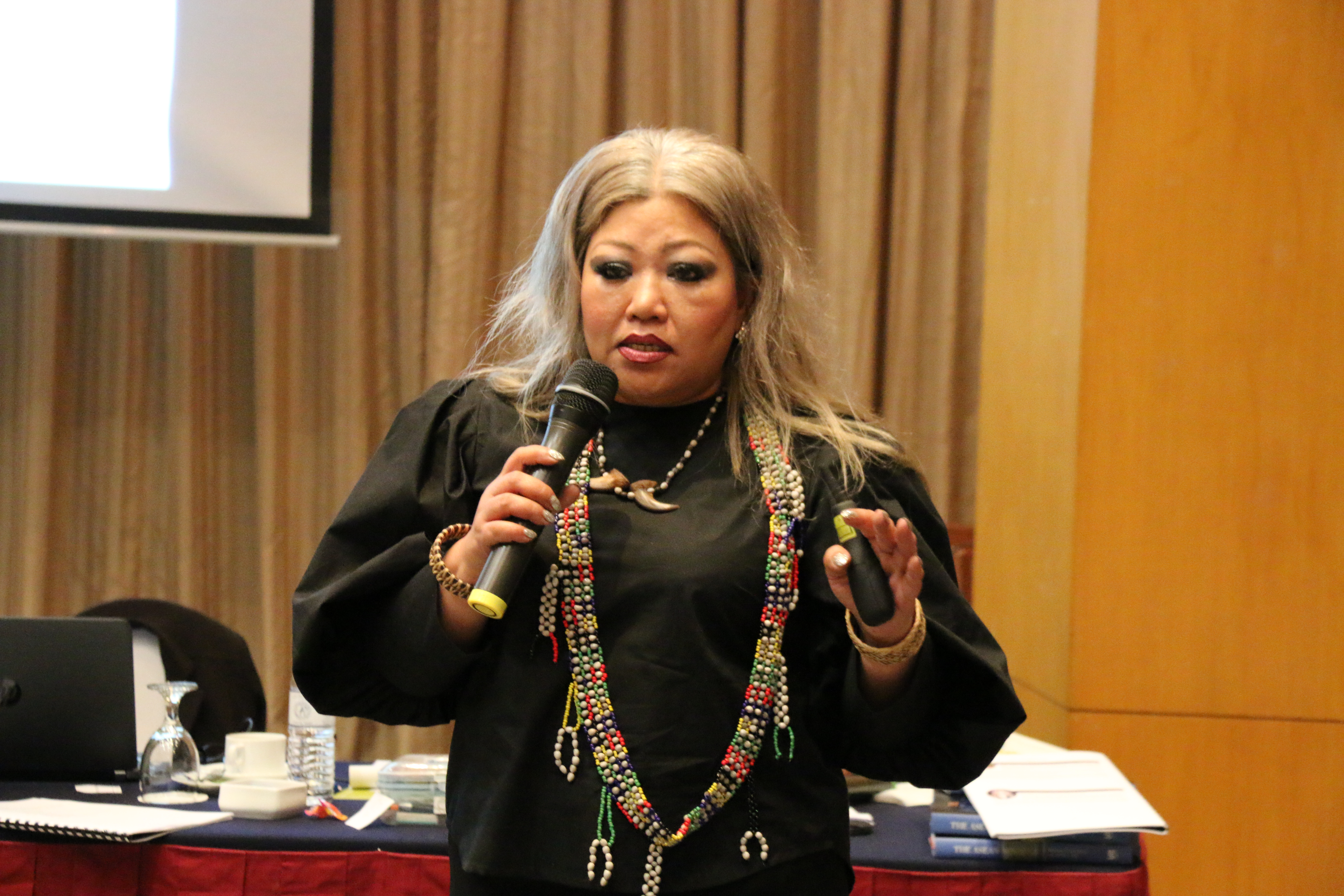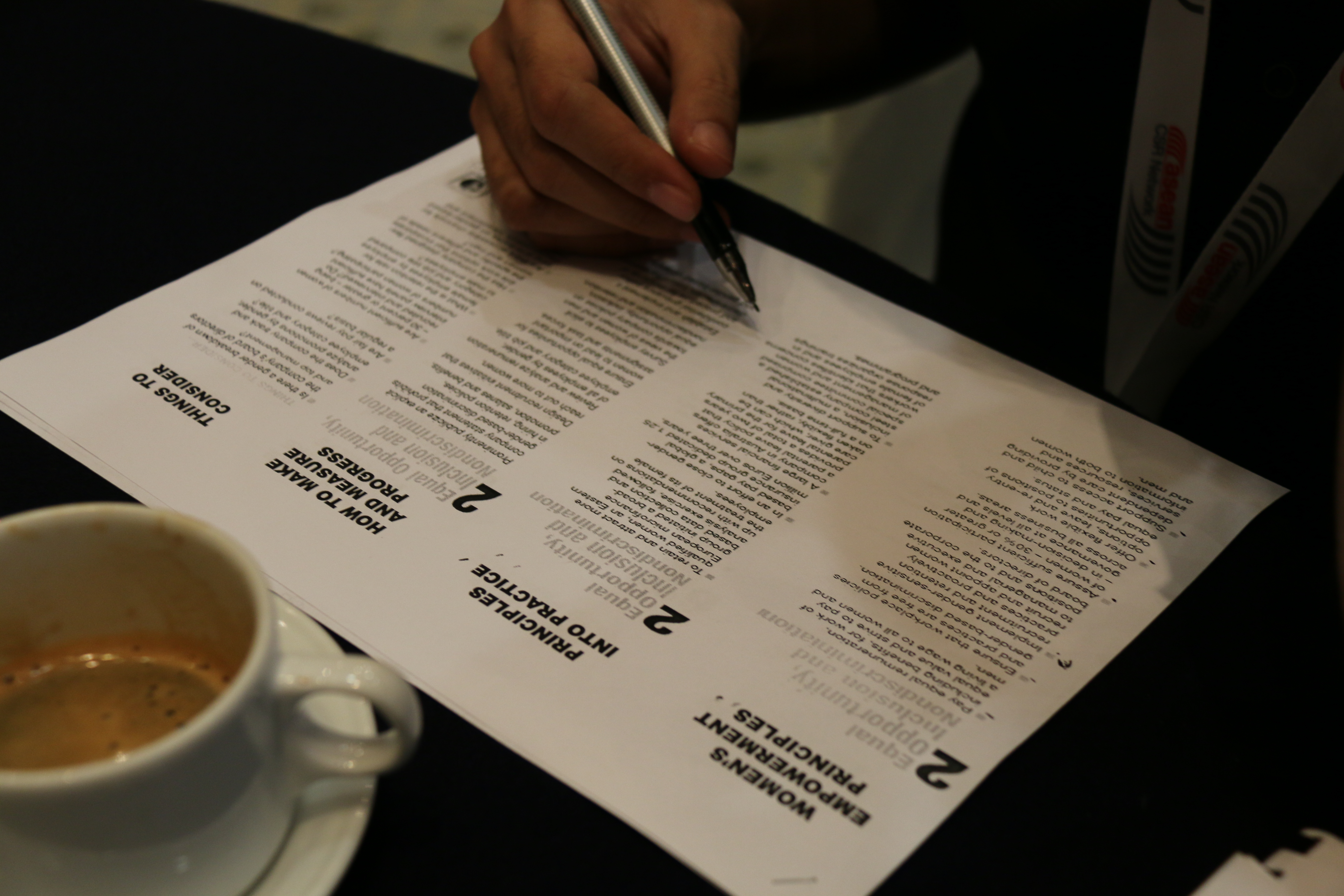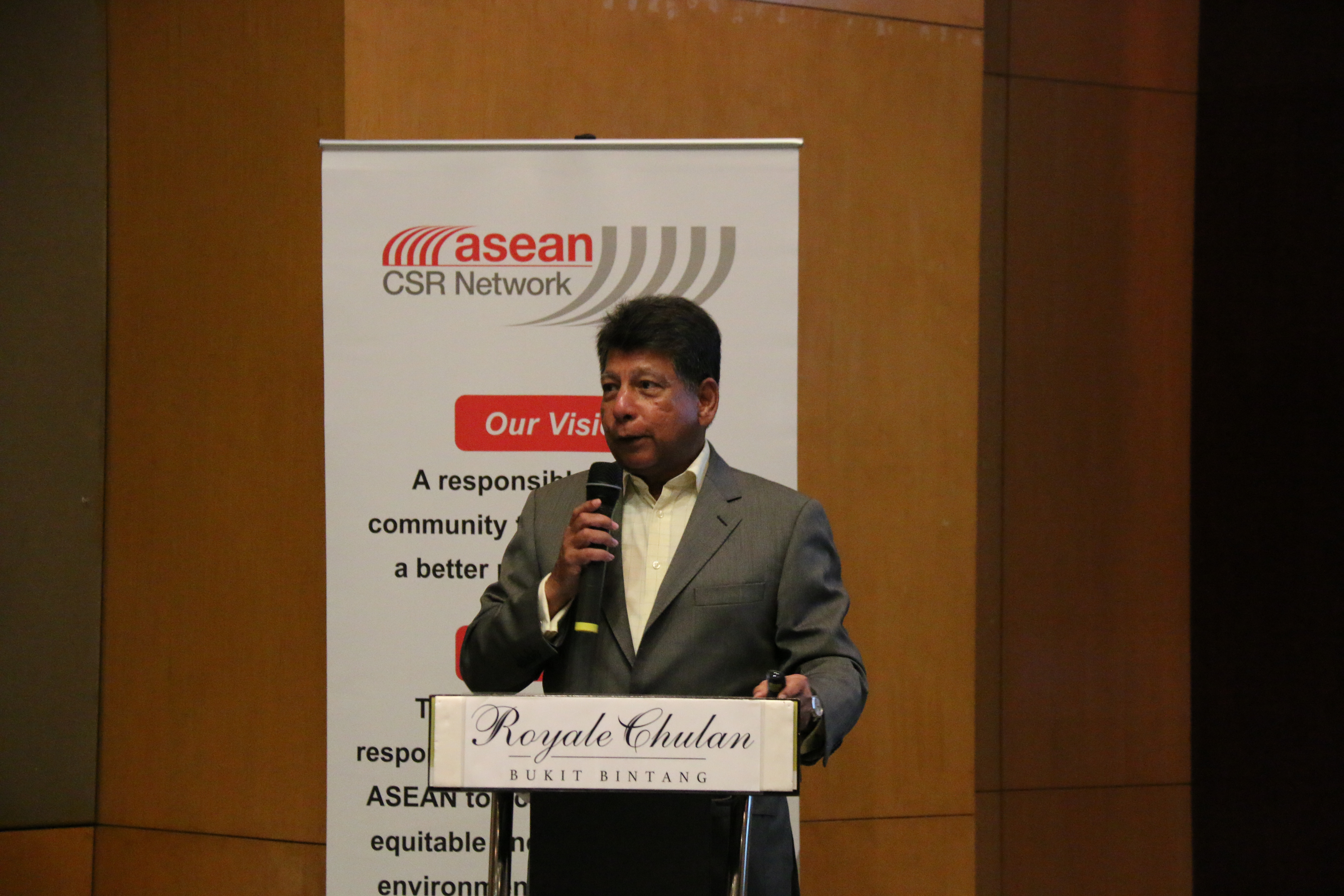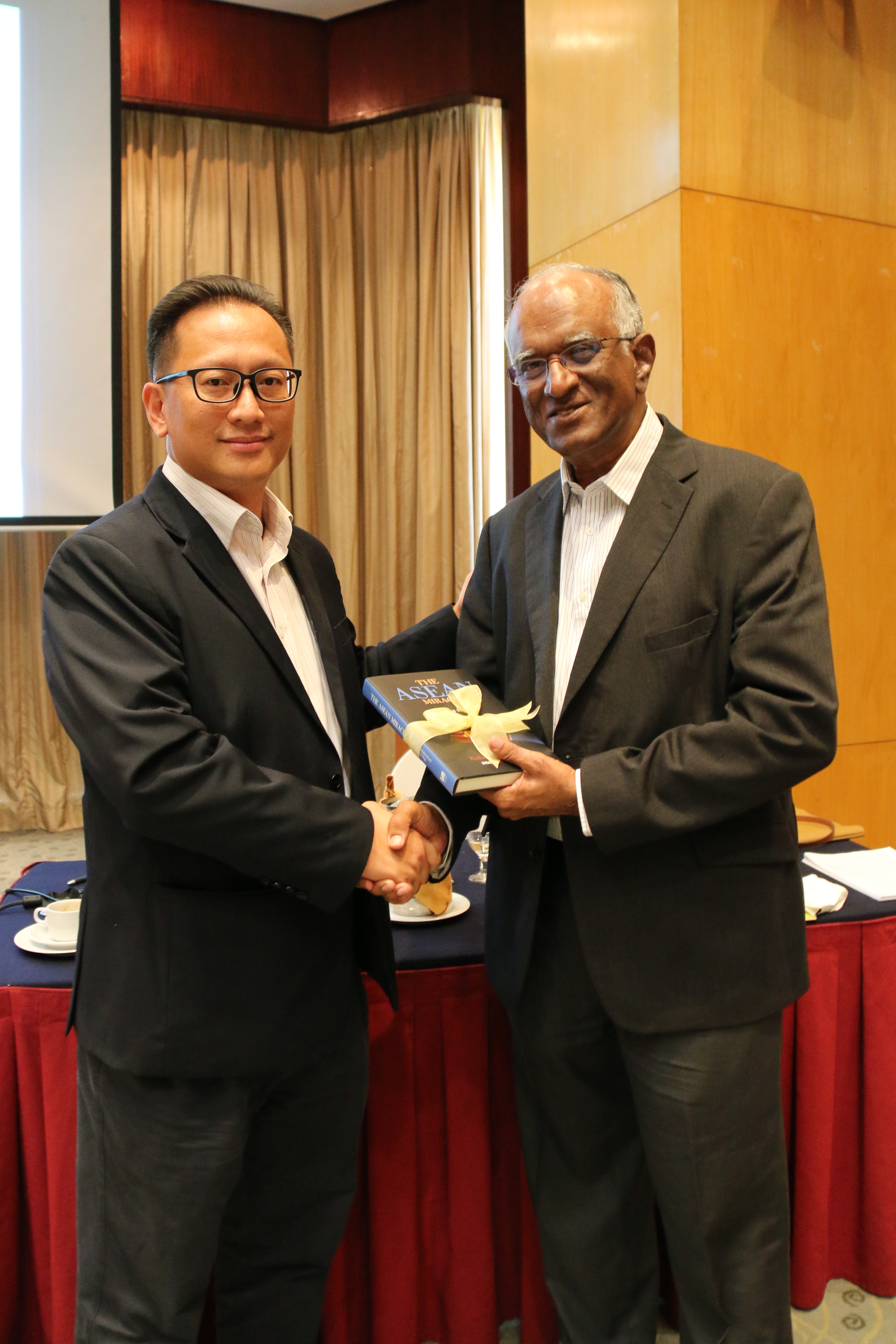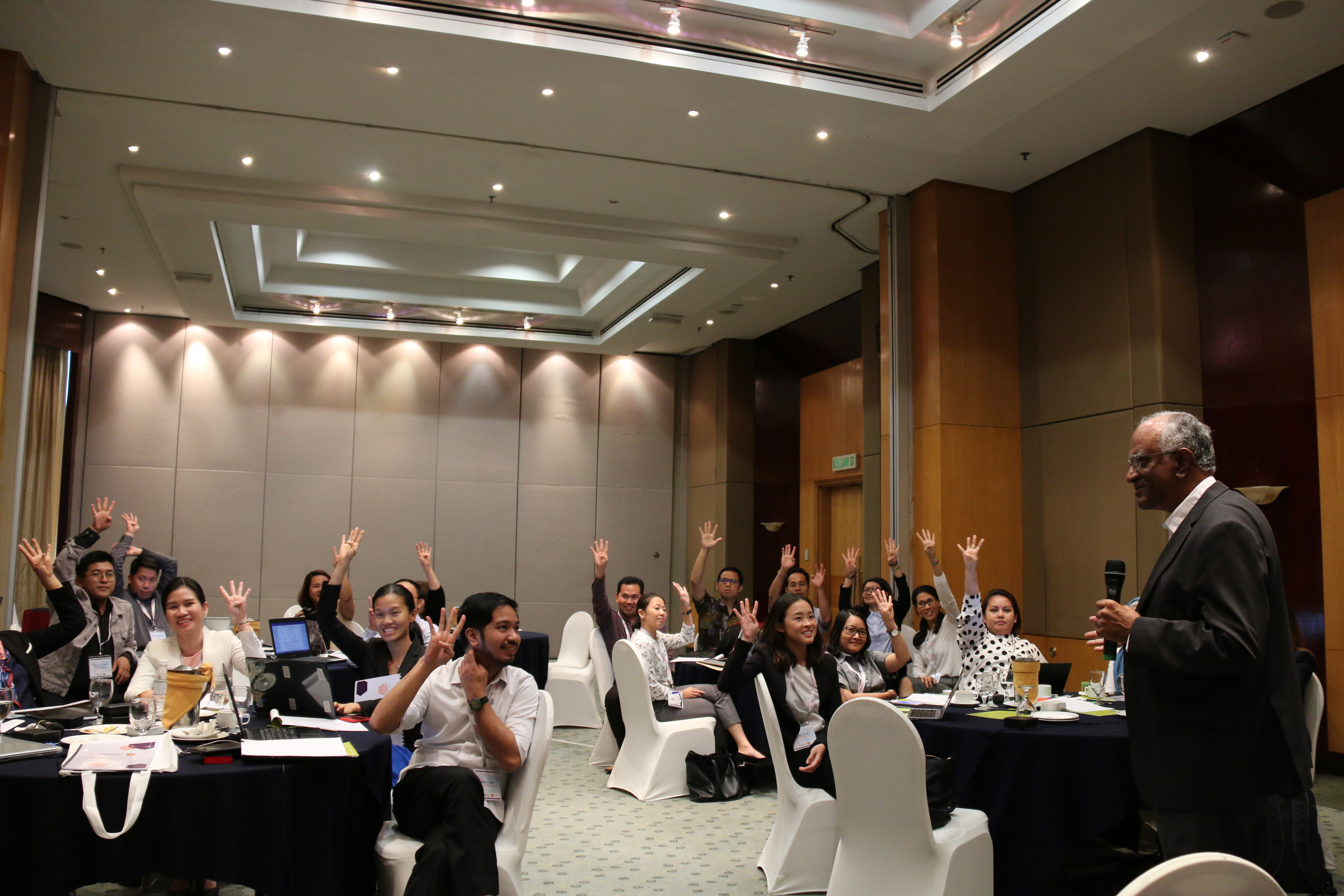ASEAN CSR Fellowship 2018 kicks off in Kuala Lumpur
ASEAN CSR Network (ACN) organised the second run of the ASEAN CSR Fellowship between 5 and 9 March 2018. It was held at the Royale Chulan Bukit Bintang, Kuala Lumpur, Malaysia, with support from the UK Foreign and Commonwealth Office (UK FCO), Government of Sweden through the Embassy of Sweden in Bangkok, National Youth Council Singapore, and International Chamber of Commerce Malaysia (ICC Malaysia).
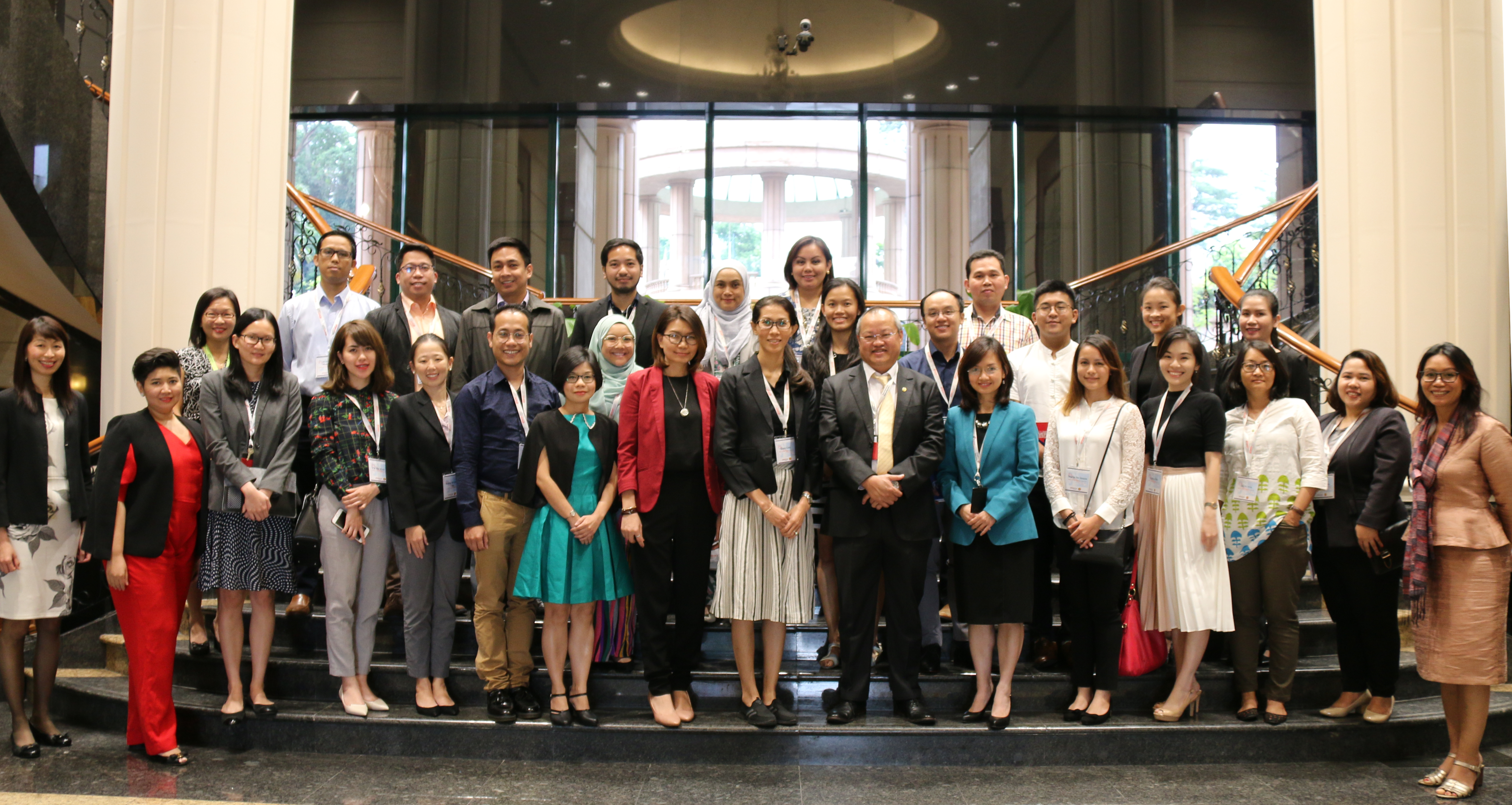
Class of 2018 Fellows in a group photograph with Mr. Wong Kay Yong, Executive Vice President,
Corporate Surveillance & Governance of Bursa Malaysia, formerly Kuala Lumpur Stock Exchange (KLSE)
It was participated by 23 Fellows, represented by all ASEAN member states, except Brunei. Most of the Fellows are employed in the private sector (90 percent), and 10 percent of the Fellows comprised of professionals who work in the third sector and academia.
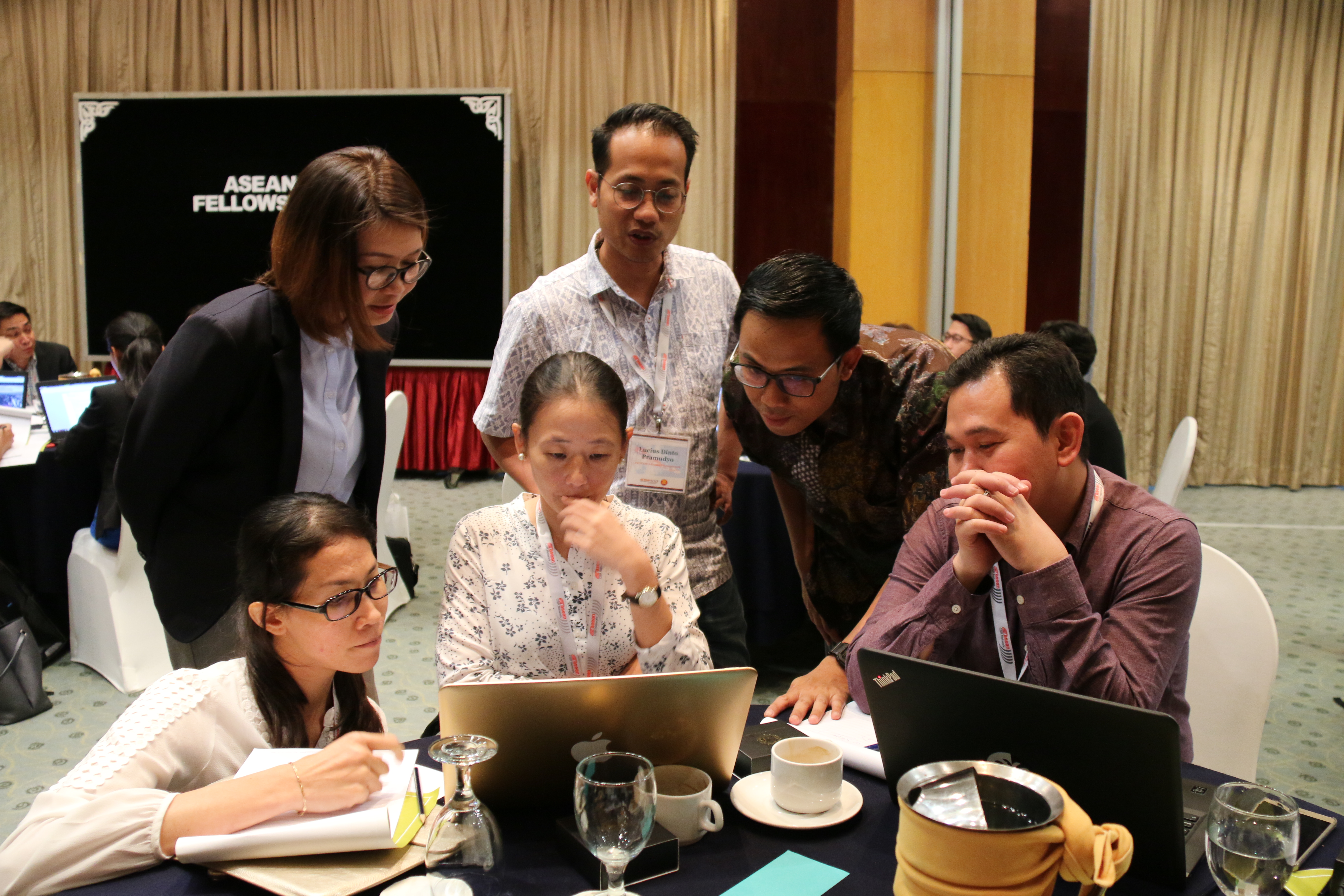
Left: Fellows engaged in groupwork; Right: Fellows enjoying the sights in Putrajaya
The overall aim of the programme is to develop a pool of professionals to become ambassadors for responsible business in Southeast Asia. It aims to bring together a team of high-potential individuals from businesses, governments, academia, and civil societies, to equip them with in-depth theoretical and practical concepts in responsible business. The learning objective is to build an understanding of responsible business as it applies across ASEAN.
In this module, Fellows were introduced to the basics of corporate social responsibility and responsible business practices, with specific focus on business and human rights, as well as business integrity and anti-corruption. The module also thoroughly examined issues pertaining to gender equality and women’s empowerment in Malaysia, as well as financial inclusion.
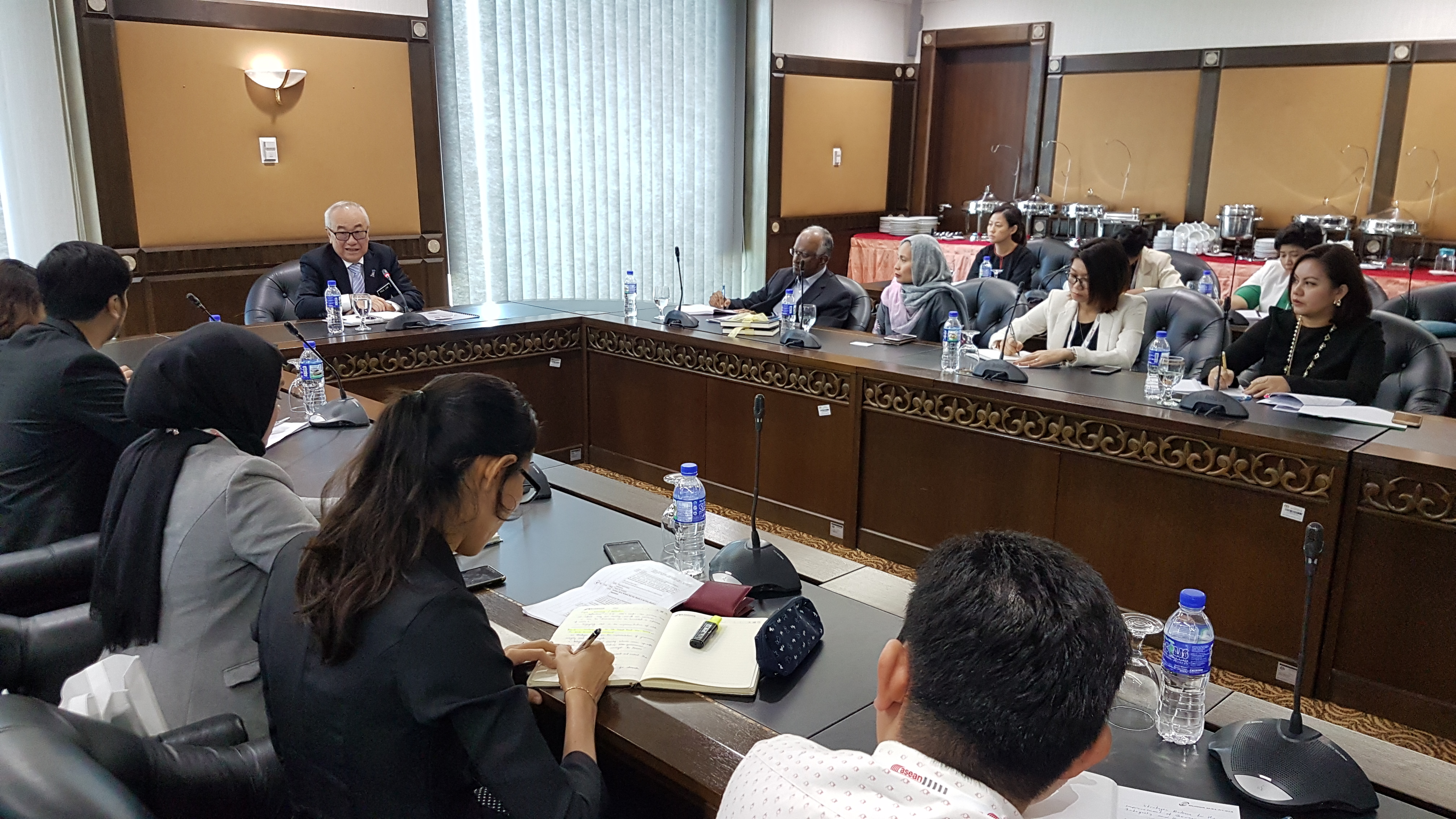
Courtesy Call to H.E. Senator Datuk Paul Low, Minister in the Prime Minister’s Department
The 5-day programme featured sessions specific to: a) Understanding Malaysia, b) Business Case for CSR and Responsible Business, c) Business Integrity and Anti-Corruption, d) Introduction to Sustainability Reporting, e) Educational Visit to Bursa Malaysia (formally Kuala Lumpur Stock Exchange), e) UN Guiding Principles on Business and Human Rights, f) Business and Human Rights, g) Women Empowerment and Gender Equality, h) Courtesy Call to H.E. Senator Datuk Paul Low, Prime Minister’s Department, i) A Visit to Putrajaya Holdings and Malaysian Global Innovation & Creativity Centre (MaGIC) in Cyberjaya, j) Financial Inclusion, and k) A Case Study on Promoting Responsible Business.
From L-R: Mr Edmund Bon, Representative of Malaysia to the ASEAN Intergovernmental Commission on Human Rights (AICHR),
Mr Joseph Paul, Programme Manager, Business Accountability & Responsibility of Tenaganita,
Datuk Darrel Webber, CEO of Roundtable on Sustainable Palm Oil (RSPO),
Ms Siti Kasim, Lawyer from Mansoor Saat, Siti Kasim & Associates,
and Mr Thomas Thomas, CEO of ASEAN CSR Network (ACN)
Among the prominent role players of this programme were H.E. Senator Datuk Paul Low Seng Kuan, Minister in the Prime Minister’s Department of Malaysia, H.E. Ms Vicki Treadell, British High Commissioner to Malaysia, Tan Sri Dato’ Dr Mohd Munir Majid, Chairman, ASEAN Business Advisory Council (ASEAN-BAC), Datuk David Chua, Member of Anti-Corruption Advisory Board (Hon Appointment), Malaysian Anti-Corruption Commission (MACC), Mr Edmund Bon, Representative of Malaysia to the ASEAN Intergovernmental Commission on Human Rights (AICHR), Ms Cynthia Gabriel, Executive Director, Center to Combat Corruption and Cronyism (C4 Center), Mr Joseph Paul, Programme Manager, Business Accountability & Responsibility, Tenaganita, Mrs Omna Sreeni-Ong, Hon Secretary-General, National Council of Women’s Organisation (NCWO) and Mr Rizal Nainy, Deputy CEO, SME Corp.
In the session on Understanding Malaysia, Associate Professor Ruby Ahmad, lecturer from University of Malaya, gave an overview of the socio-economic background, demographics and a quick snapshot of the governance structure of Malaysia. Critical reflections emerged on how the transition of the First Malaysia Plan to the Eleventh Malaysia Plan has contributed to the development of Malaysia. Specific emphasis was given on the National Economic Policy (NEP-1971-1991), Look East Policy (1982), Malaysia Incorporated Policy (2020), National Development Policy (1991-2000), and Vision 2020. In this regard, the session also highlighted the economic challenges faced in Malaysia and measures taken to address these challenges. Questions were raised if Malaysia could achieve Vision 2020.
Fellows and Role Players at the British High Commissioner's Residence
During the panel discussion on Business Case for CSR and Responsible Business, which was hosted at the British High Commissioner’s Residence, H.E. Ms Vicki Treadell, British High Commissioner to Malaysia, commenced the session by delivering a Keynote Speech. H.E. Ms Treadell touched on the UK government’s stance on responsible business practices and the role of its foreign missions in maintaining its responsible business standards. During the panel discussion, moderated by Datuk Dr Wong Lai Sum, Economic Adviser to the Minister of Transport, panellist Mr Shahazar Yazid, Executive Director of the UN Global Compact Malaysia introduced the organisation’s new initiative, Bluenumber, which is a global registry to trace supply chains. Panellist Dato’ Chevy Beh, Founder of BookDoc made the case for CSR by drawing attention to the fact that it promotes a better image for the company. The session highlighted the importance of aligning with the right companies and organisations who have a shared vision in promoting responsible business practices.
From L-R: Dr Muhammad Mohan, Secretary-General of Transparency International Malaysia,
Ms Cynthia Gabriel, Executive Director of C4 Center, Datuk David Chua, Hon Member of MACC,
and Mr Mark Chay, Executive Director of Coalition for Business Integrity
In the panel discussion on Business Integrity and Anti-Corruption moderated by Dr Muhammad Mohan, Secretary-General of Transparency International Malaysia, panellist Mr Mark Chay, Executive Director of the Coalition for Business Integrity, first gave an overview of the cost of corruption for companies. This was followed by an introduction to the UN Convention Against Corruption (UNCAC) by panellist Ms Cynthia Gabriel, Executive Director of C4 Center, who also gave examples of the lack of transparency in Malaysia’s political financing and state-owned enterprises. Datuk David Chua, Hon Member of MACC, then concluded the panel discussion by explaining the government’s role in promoting anti-corruption, which includes having systems and procedures, as well as enforcement and punitive actions. The session called attention to citizens to take on a more proactive approach to ensure checks and balances.
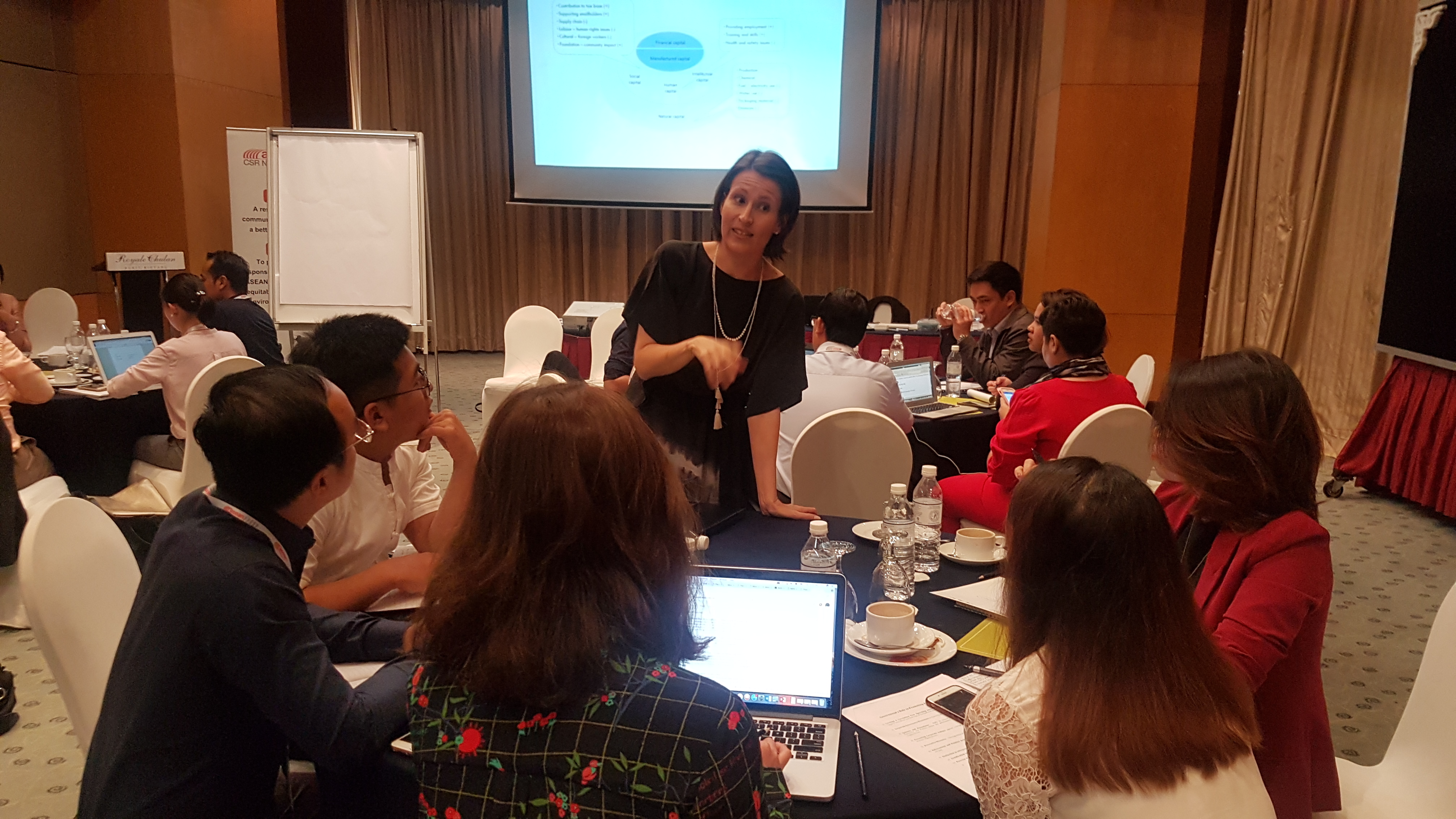
Ms Kirsi Salonen facilitating groupwork
During the session on Introduction to Sustainability Reporting, Ms Kirsi Salonen, Consultant from Synergio discussed the GRI standards and gave examples of what makes a good sustainability report. The Fellows engaged in groupwork to discuss the themes and issues that need to be taken into consideration when preparing a sustainability report, and go through some real examples to identify improvements that can be made to existing sustainability reports.
Ms Lynda Lim, Programme Director, ASEAN CSR Network (ACN),
giving an introduction of ACN and the ASEAN CSR Fellowship at Bursa Malaysia
At Bursa Malaysia, Fellows were given an overview of Bursa Malaysia’s work and the framework of their business by Mr Wong Kay Yong, Executive Vice President, Corporate Surveillance and Governance. The session highlighted Bursa Malaysia’s strict guidelines on sustainability reporting and anti-corruption laws. In this regard, Fellows reflected on the government’s role in persuading businesses to shift to a circular economy while maintaining a strong foundation of the triple bottom line.
Ms Nurul Hasanah, Deputy Secretary, Policy and Law Working Group from the National Human Rights Commission of Malaysia (SUHAKAM) gave a comprehensive introduction to the UN Guiding Principles on Business and Human Rights, particularly the “Protect, Respect and Remedy” framework. She also briefly talked about SUHAKAM’s involvement in Business and Human Rights in Malaysia, as well as the formulation of a National Action Plan (NAP) on Business and Human Rights.
Ms Siti Kasim addressing Orang Asli’s rights
In the panel discussion on Business and Human Rights, moderated by Mr Edmund Bon from AICHR, panellist Datuk Darrell Webber, CEO of the Roundtable of Sustainable Palm Oil (RSPO), touched on key human rights issues in the Malaysian palm oil sector and how RSPO addresses these issues, such as having policies on no discrimination, child labour and forced labour. Mr Joseph Paul, Programme Manager, Business Accountability & Responsibility from Tenaganita, then addressed issues of migrant workers in Malaysia, and how businesses are often complicit in these issues, by condoning human trafficking, not respecting the rights of migrant workers, and encouraging practices of modern day slavery. Finally, panellist Ms Siti Kasim, Lawyer from Mansoor Saat, Siti Kasim & Associates, gave an overview of the Orang Asli and the issues that they are facing. The Fellows had a robust discussion, reflecting on challenges faced in the implementation of human rights principles, provision of resources for relevant industry players, as well as buy-in from governments to drive the agenda forward.
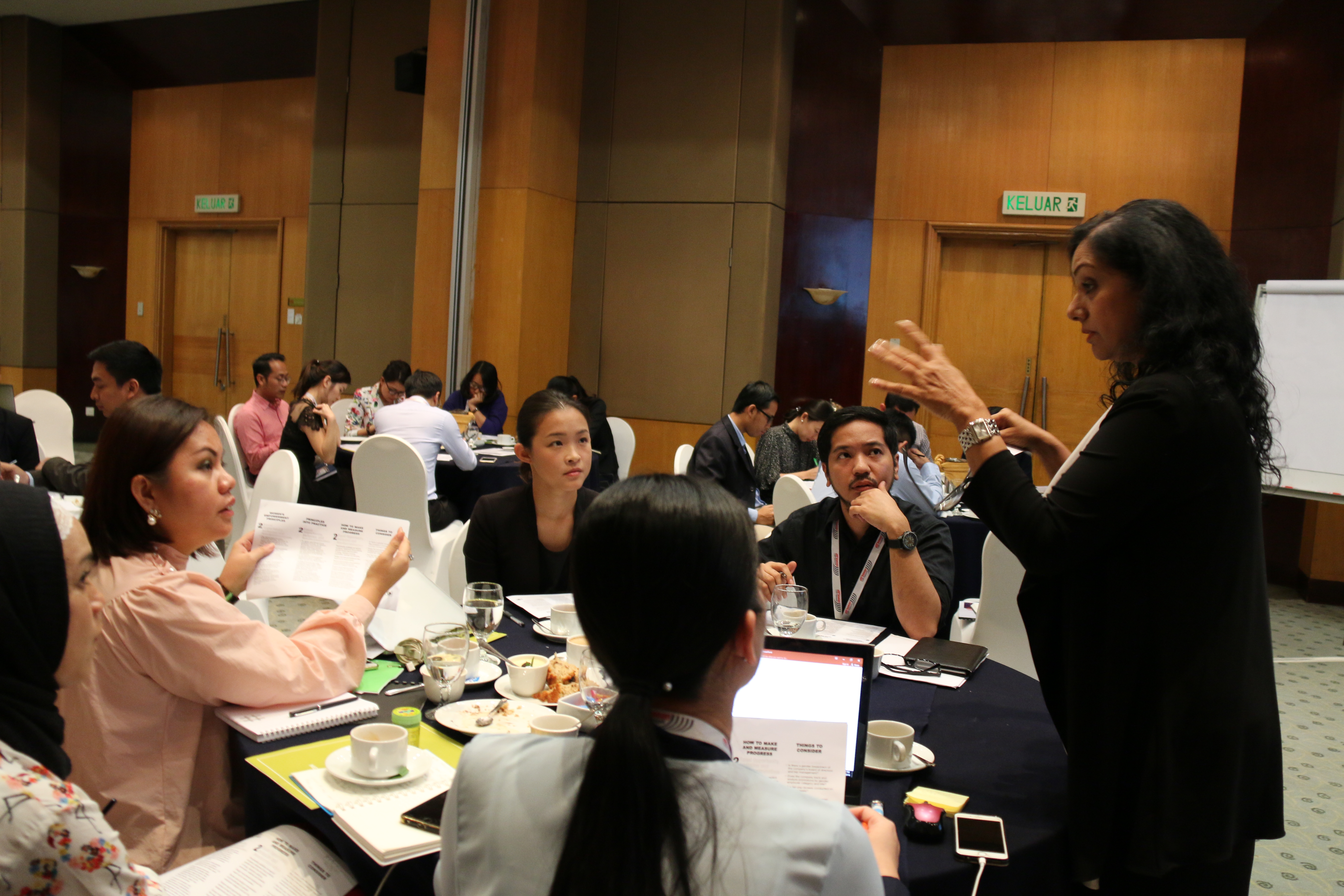
Bottom: Mrs Omna-Sreeni Ong facilitating groupwork
In the session on Women Empowerment and Gender Equality, Dato’ Ramani Gurusamy, Vice-President of the National Council of Women’s Organisations (NCWO) first gave a brief history of NCWO and its key achievements, such as the adoption of the National Policy on Women and establishment of the One Stop (Rape) Crisis Centre. Mrs Omna Sreeni-Ong, Hon Secretary-General, also from NCWO, then presented on the relevance of advancing the gender agenda in ASEAN, paying particular attention to Women’s Empowerment Principles 2 and 6 – Treat all women and men fairly at work – respect and support human rights and non-discrimination, and Promote equality through community initiatives and advocacy.
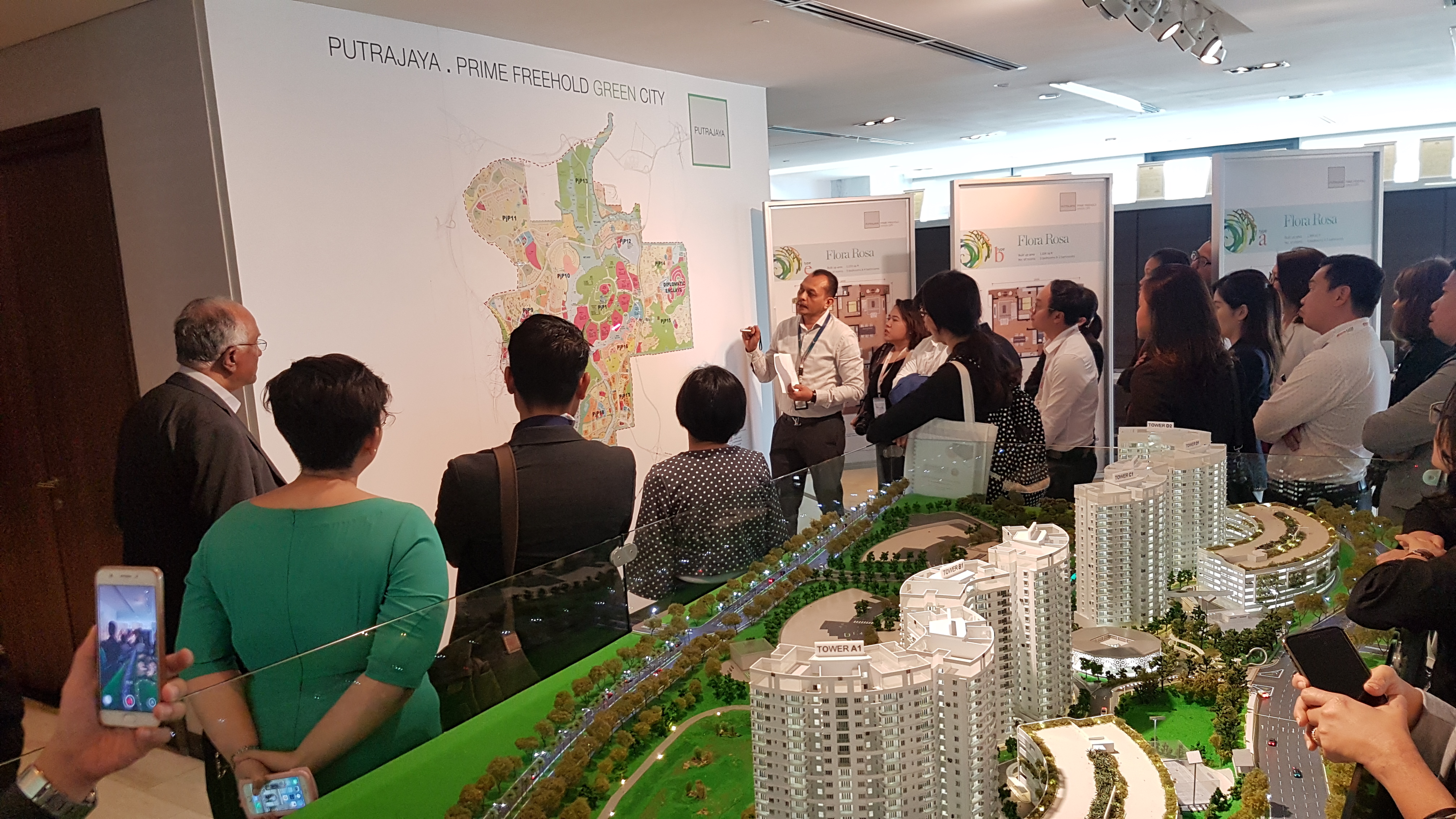
An introduction to the various precincts and key landmarks in Putrajaya
In Putrajaya, Fellows first made a Courtesy Call to H.E. Senator Datuk Paul Low, Minister in the Prime Minister’s Department, who talked about the strategies and challenges that the government face in developing and implementing policies, specifically those that pertain to corruption and human rights. He also reflected on the role of civil society in the development of government policies. The Fellows then headed to Putrajaya Holdings, where they were introduced to the innovative planning and sustainable design of Putrajaya, Malaysia’s administrative capital, by Ms Alice Yeap, General Manager, Corporate Planning and Business Development Division. The Fellows concluded their day with a visit to the Malaysian Global Innovation & Creativity Centre (MaGIC) in Cyberjaya, where Dato’ Ruby Khong, Project Consultant, shared passionately about MaGIC’s role in building an enterprising society. She also reflected on the difference between a charity dollar and social dollar, the latter being able to create greater impact in people’s lives.
Tan Sri Dato’ Dr Mohd Munir Abdul Majid delivering his keynote speech
The panel discussion on Financial Inclusion started with a Keynote Speech by Tan Sri Dato’ Dr Mohd Munir Abdul Majid, Chairman of ASEAN-BAC, who introduced Malaysia’s financial inclusion initiatives and strategies, as well as the shared benefits and challenges in achieving financial inclusion. Panellist Mr Rizal Nainy, Deputy CEO of SME Corp also reflected on the gaps that exist in financing for start-ups and businesses that are in its early stage, and how the rise of financial technology (FinTech) has contributed to greater financial inclusion. To address financial inclusion from a social development perspective, panellist Dr Lin Mui Kiang, Hon Member of the Society for the Promotion of Human Rights (PROHAM), presented on how financial inclusion can contribute to the achievement of the Sustainable Development Goals (SDGs). Critical analysis was made on the central bank’s financial inclusion framework and importance of public-private partnership in setting up inclusive financing facilities, particularly for the poor.
Mr Lee Ming Enn receiving a token of appreciation from Mr Thomas Thomas
In the concluding session on A Case Study Promoting Responsible Business, Mr Lee Ming Enn, Principal Sustainability Officer of Sime Darby Plantation, took a deep dive into the challenges facing the palm oil industry and what industry players can do to put sustainability or responsible business practices into practice. He reflected on the standards and commitments that can be made to become a responsible business player in the palm oil industry.
Fellows engaged in a closing dialogue with Mr Thomas Thomas
Overall, the Fellows expressed their appreciation of having the opportunity to share and discuss pertinent responsible business issues, both with the role players as well as among themselves. Other than having a better understanding of CSR and responsible business, Fellows have committed to re-evaluate their companies’ current engagement with the SDGs, how they can better implement responsible business practices, and bank on the network that they have built through the Fellowship to collaborate with like-minded companies and organisations to advance the responsible business agenda.
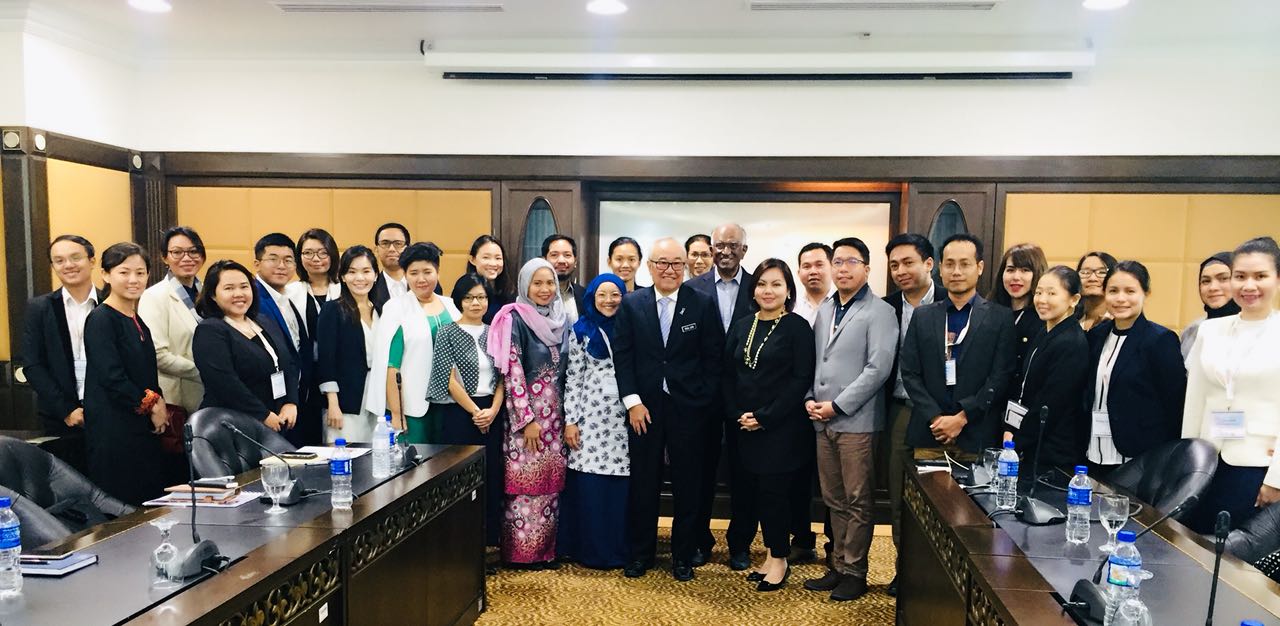
Class of 2018 Fellows with H.E. Senator Datuk Paul Low

